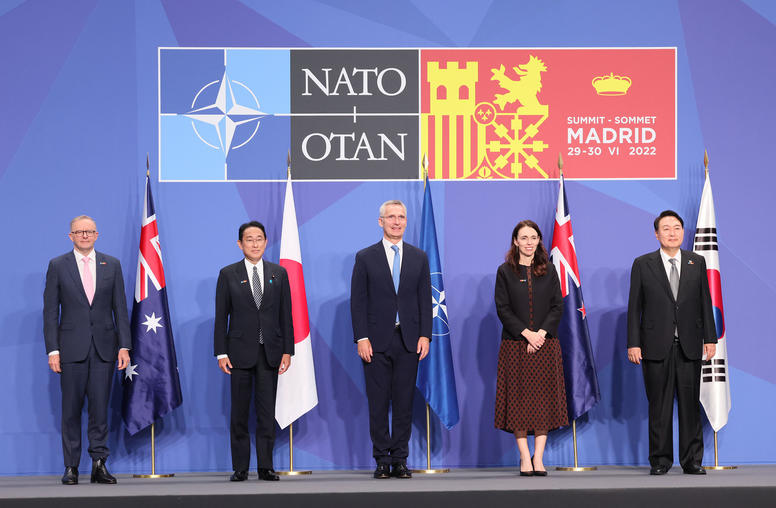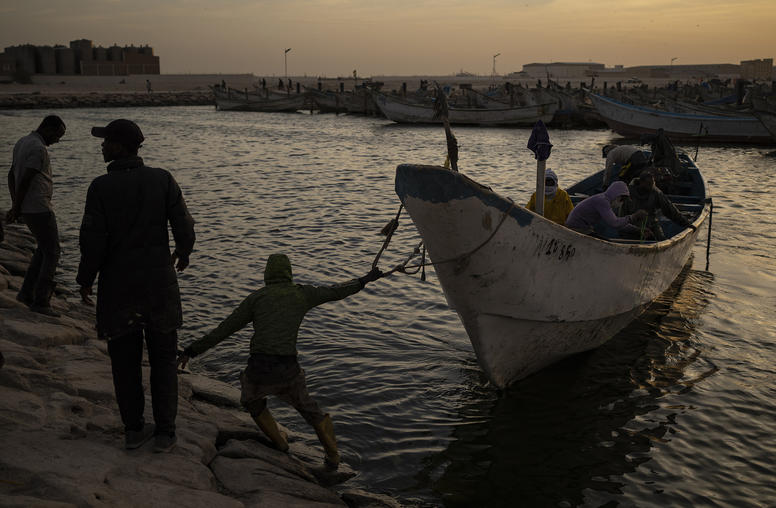 Civilian-Military Relations
Civilian-Military Relations
Military and civilian agencies have worked more closely in recent years to prevent or reduce violent conflict, build the capacities of governments and strengthen national security. Still, lessons from the field show that more needs to be done to improve mutual understanding and cooperation among the array of organizations providing assistance. Lack of understanding has led to duplication of effort, inefficient use of limited resources and unintended consequences.
Featured Publications

Argentina’s Milei Wants ‘Reconciliation’ with the Military
On March 24, Argentina’s presidency released a video aimed at providing what it called a “complete” vision of the country’s “National Day of Memory for Truth and Justice,” an annual holiday held on the anniversary of the 1976 coup d’etat that established the military regime that ruled the country until 1983.

Report of the Expert Study Group on NATO and Indo-Pacific Partners
The North Atlantic Treaty Organization (NATO) and its four partner countries in the Indo-Pacific—Australia, Japan, the Republic of Korea (ROK), and New Zealand—have entered a period of increased engagement. This engagement is taking shape in the context of the war waged by the Russian Federation (Russia) against Ukraine, NATO’s growing awareness of the security challenges posed by the People’s Republic of China (China), and important structural changes in the international system, including the return of strategic competition between the United States and China and Russia. It is occurring not only in bilateral NATO-partner relations but also between NATO and these Indo-Pacific countries as a group.

Senior Study Group for the Sahel: Final Report and Recommendations
The United States has not traditionally viewed the Sahel as a region of vital interest, whether in terms of security or from an economic or business perspective. This has led to a pattern of reactive involvement shaped by the circumstances of specific events rather than proactive commitments. This pattern reveals the lack of a comprehensive strategy for the volatile Western Sahel region, which includes Burkina Faso, Chad, Mali, Mauritania, and Niger. In April 2022, President Joe Biden announced that the US government would advance the “U.S. Strategy to Prevent Conflict and Promote Stability” in coastal West Africa by prioritizing a partnership with Benin, Côte d’Ivoire, Ghana, Guinea, and Togo.
Current Projects

Border Security Training Program
USIP’s Border Security Training Program trains police officers from Kenya’s Border Police Unit and General Service Unit who serve along the Kenya-Somalia border. The program increases the capacity of Kenyan police to manage conflicts nonviolently and to effectively partner with communities along the Kenya-Somalia border in order to more effectively interdict terrorist suspects and reduce justice-related drivers of violent extremism in Northeast Kenya.

Conflict Management Training for Peacekeepers
In 2004, the U.S. Department of State attended a lessons-learned conference in Rwanda, where commanders returning from Darfur reported that much of their peacekeeping work involved some form of negotiation. They expressed the need for their successors to receive training in conflict management skills in order to succeed, which their pre-deployment training dedicated very little focus to at the time. To fill this training gap, the U.S. Department of State approached USIP in 2008 to deliver conflict management trainings for peacekeepers as part of the U.S. contribution to peacekeeping in Africa.

NATO and Indo-Pacific Partners: Understanding Views and Interests
To increase understanding of these changes and their impacts, USIP convened an expert study group consisting of experts from NATO countries and from NATO’s formal partner countries in the Indo-Pacific: Australia, Japan, South Korea and New Zealand, which are informally known as the Indo-Pacific Four (or IP4).